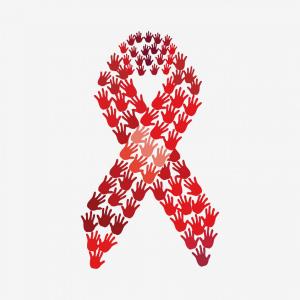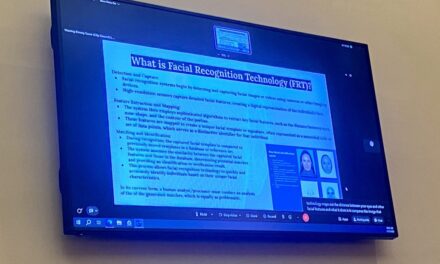Washington D.C.will celebrate National HIV Testing Day on June 27, 2023. It is important for residents who may have been affected by the human immunodeficiency virus (HIV) in Washington D.C., Maryland and Virginia (DMV) areas get tested at their local testing site.
HIV, the virus that causes acquired immunodeficiency syndrome (AIDS) is one of the world’s greatest challenges. HIV is transmitted through specific bodily fluids like blood. The virus weakens the immune system and destroys cells that fight pathogens, leaving the body completely open to attack and making even the smallest of afflictions a grave concern. The first reported case was in 1981. Today, there are about 84 million people worldwide that were infected with the disease.
Roughly 38 million people worldwide are still living with HIV and may not know it. In the United States, there are approximately 1.2 million people that have HIV. However, 13 percent of the population are unaware they have the virus.
The virus itself has disproportionate effects nationally within minority groups and LGBTQ communities, as well as in heterosexual groups.
Jason Beverly, a nurse practitioner for the D.C. Department of Health and division chief for STD and TD Control, which is part of HIV/AIDS, Hepatitis, STD and TD Administration (HAHSTA) in the nation’s capital, spoke with the AFRO about the process of HIV testing ahead of National HIV Testing Day.
Beverly mentioned how HIV testing has improved over the years.
“If you think back to when people started testing for HIV, we had to tell people that from the time of exposure to the time you tested positive could be as much as six months,” said Beverly.
Today, there are multiple ways to test and the results are verified much quicker. Patients have many options, including the blood test.
“An oral swab test would be used along the lining of the cheek and gum…takes about 20 minutes. The finger stick test takes about one minute,” said Beverly. “For both tests, whether or not a person is positive…results show in six weeks. For the blood draw test, where the patient has blood drawn from the arm…results show in three to four weeks,” said Beverly.
Due to more attention being placed on COVID-19, HIV/AIDS prevention and treatments for some were delayed. Three years into the pandemic, restrictions have been lifted and there are less hospitalizations and deaths are being recorded.
Life is returning to normal for most, but it has been anything but a walk in the park for those with weakened immune systems. Beverly described some of the challenges that came with COVID-19 as it relates to HIV/AIDS patients.
“We had some serious challenges when it came to HIV and other STI testing during COVID,” said Beverly. “It really did have a profound impact. We saw a significant decline in the number of places that people could go to get routine asymptomatic HIV and other STI testing in the beginning of the COVID-19 pandemic.”
“An oral swab test would be used along the lining of the cheek and gum…takes about 20 minutes. The finger stick test takes about one minute. For both tests, whether or not a person is positive…results show in six weeks. For the blood draw test, where the patient has blood drawn from the arm…results show in three to four weeks.”
Beverly states how the decrease in the number of patients coming to get tested reflected on the number of cases recorded during the pandemic.
“In 2020, we only had 219 new cases of HIV in the District, but that number was a little bit mis-leading because part of the reason we had many fewer cases of HIV was because people had less access to testing,” said Beverly.
The District of Columbia has laid out a plan under the Joint United Nations Programme on HIV/AIDS(UNAIDS) to help with regulating the cases with HIV.
The “95/95/95” plan was created by the UNAIDS. It was originally called the “90/90/90” plan, but post 2020, it was extended. The goal of this plan is that 95 percent of people who contracted HIV should be aware of their HIV status, diagnosed for treatment and should reach viral suppression, meaning they can no longer spread the virus to their partners. This plan is meant to suppress the number of HIV cases in D.C. by the year 2030.
Prevention options for HIV include having safe sex, blood supply safety, and harm reduction from injecting drugs.
According to the CDC, medications such as PreP (Pre-exposure prophylaxis). PreP can be administered as a shot or pill. The pill for PreP is a one-day-a-pill medication that protects against HIV. Both options are effective for HIV patients.
Another option for treatment of HIV is using antiretroviral therapy(ART) which attacks the virus directly and medication that treats for further infection, slowing down the negative effects on the immune system.
HIV/AIDS is a serious issue and should not be taken lightly. In response to National HIV Testing Day, here are some locations in Washington D.C. to get tested.
- Carol Whitehill Moses Center, 1225 4th Street NE, Washington D.C. 20002
Phone number: 202-347-8512
- DC Health and Wellness Center, 77 P Street NE, Washington D.C. 20002 Phone number: 202-741-7692
- AHF Healthcare Center, 2141 K Street NE, Washington D.C. 20037
Phone number: 202-293-8660
- Whitman-Walker Clinic, 1701 14th Street NW, Washington D.C. 20009
Phone number: 202-745-7000
- Us Helping Us, People Into Living Inc. 3636 Georgia Ave NW, Washington D.C. 20010
Phone number: 202-446-1100
Gene Lambey is a resident of Washington D.C. with an interest in covering all things related to the community.
Sources:
Annual Epidemiology & Surveillance Report – Washington, D.C. (2021, December). https://dchealth.dc.gov/sites/default/files/dc/sites/doh/publication/attachments/2021%20Annual%20Surveillance%20Report_final_3.29.pdf
Portnoy, J. (2023, February 8). HIV diagnoses up slightly in D.C. after testing dipped during pandemic. The Washington Post. https://www.washingtonpost.com/dc-md-va/2023/02/07/hiv-dc-pandemic-testing-disparities/
Published Apr 18, 2023. (2023, April 18). The global HIV/AIDS epidemic. KFF. https://www.kff.org/global-health-policy/fact-sheet/the-global-hivaids-epidemic/
Centers for Disease Control and Prevention. (2022, June 30). About prep. Centers for Disease Control and Prevention. https://www.cdc.gov/hiv/basics/prep/about-prep.html
90-90-90: Treatment for all. UNAIDS. (n.d.). https://www.unaids.org/en/resources/909090
The post June 27 is National HIV Testing Day. Do you know your status? appeared first on AFRO American Newspapers .










